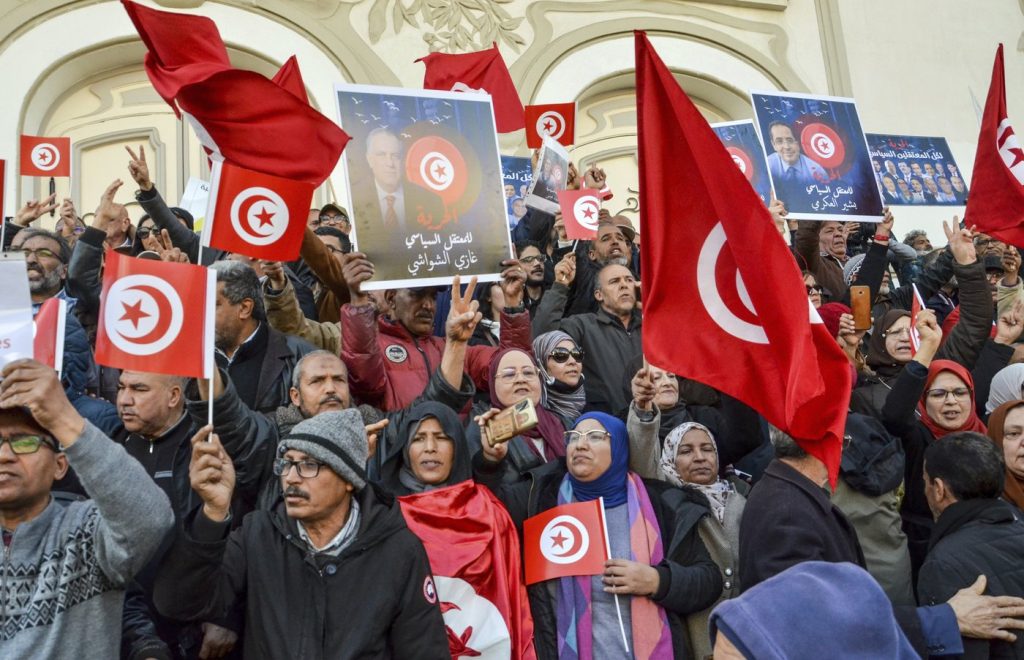TUNIS, Tunisia (AP) – In a significant legal development, a court in Tunisia has sentenced prominent opposition figures to prison terms ranging from 13 to 66 years. This ruling concludes a high-profile trial involving allegations against 40 individuals accused of conspiring against state security. The sentences were reported by local media sources, highlighting the severity of the charges faced by these opposition leaders.
Human rights activists have labeled the proceedings as politically motivated and baseless. Since the Arab Spring in 2011, which initially promised greater freedoms for Tunisians, President Kais Saied has implemented measures that many view as a rollback of democratic reforms. His administration has been criticized for its aggressive approach towards dissent, with numerous arrests and convictions of opposition members since Saied assumed greater control over the government.
The trial, which commenced in March, culminated in late September with the court handing down sentences to several well-known figures within Tunisia's political landscape. Those implicated in the case include former diplomats, prominent business leaders, journalists, legal professionals, and human rights defenders. It was reported that some defendants had spent over two years in pre-trial detention, while others chose to flee the country rather than face the court.
According to the official Tunisian news agency TAP and local radio Jawahra FM, the sentences were handed down by a special criminal court designated to handle terrorism-related cases. A substitute prosecutor indicated that the accused were found guilty of conspiracy against state security and involvement with a terrorist organization. Legal representatives have noted that the exact number of defendants who received prison sentences remains unclear.
Among those convicted is former Tunisian legislator Said Ferjani, who was sentenced to 13 years in prison. Ferjani's daughter, Kaouther Ferjani, took to social media to describe the case as a "fabricated conspiracy," indicating that additional members of the Islamist party Ennahdha also received harsh sentences. Saied has publicly branded the defendants as "traitors and terrorists," specifically addressing accusations regarding his alleged coup in 2021, which led to his consolidation of power.
International critics, including the U.N. High Commissioner for Human Rights, have voiced concerns that Saied's government is utilizing the judiciary as a tool to suppress dissent. Since he dissolved parliament and expanded executive authority in 2021, many have expressed alarm over the erosion of judicial independence and political freedoms in Tunisia.
In a recent report, Human Rights Watch highlighted the expanded use of politically motivated arrests and prosecutions aimed at intimidating and silencing opposition figures. The report documented how authorities have increasingly targeted various groups, including lawyers, judges, journalists, and activists, to maintain control over the political narrative and stifle criticism of Saied’s administration.
The ramifications of these developments could have long-lasting effects on Tunisia's political landscape, as the government’s crackdown on dissent raises significant human rights concerns and poses challenges to the country's fragile democracy. With the ongoing judicial actions against prominent political figures, the future of democratic governance in Tunisia remains uncertain.










